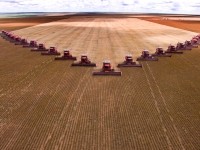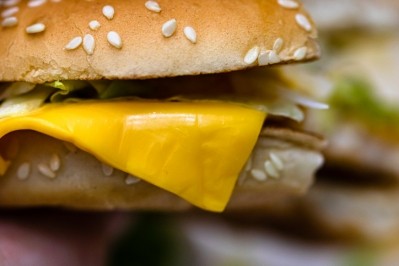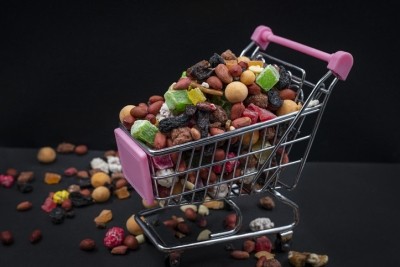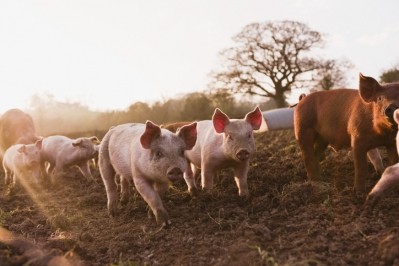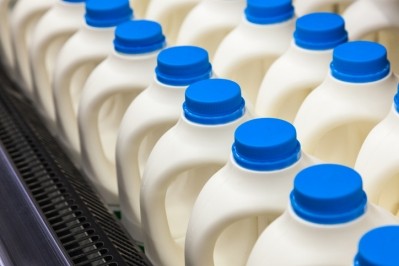Reports from Feed Protein Vision 2018
Waitrose, McDonald's and WWF see partnerships as vital for sustainable feed

The workshop, which included both feed and food industry stakeholders, was led by Simon Billing, principal sustainability advisor at the Forum for the Future, and lead on the Protein Challenge 2040.
While stressing that changing diets is one way to unlock a more sustainable food future, he asked the panel and delegates to reflect on how the food and feed industry could collaborate to help scale the best solutions for sustainable feed to meet ongoing demand for animal protein.
He pointed out that one of the barriers would seem to be low awareness of feed across the food industry: “It is difficult [for those outside of the industry] to make sense of the really technical aspects of feed. It is a really complex supply chain involving raw material providers, traders and compounders, etc.”
Representing Waitrose on the panel was Jemima Jewell, sustainable sourcing manager at the leading UK retailer; Nicola Robinson, senior manager on the global sustainability team at McDonald's Corporation, also participated along with Sandra Vijn, director, sustainable food, at World Wildlife Fund (WWF) in the US.
The retailer perspective
Jewell noted that while Waitrose is working in an extremely competitive retail environment, being an employee-owned company may give it a different perspective in relation to its responsibilities around the impact of its business both directly and down the supply chain, compared to other retailers exposed to short-term shareholder pressure.
She said, to a certain extent, because of that ownership model, Waitrose could afford to take the long-term view of many issues.
“The long term relationships we are able to form with our suppliers have also been absolutely integral to anything we have done on feed so far, and to anything we will be doing in the future.”
Waitrose has been championing the use of homegrown protein alternatives in feed including new forage sources, as well as using European grown soy in its pork supply chain.
The sustainability team at Waitrose works hand in hand with the supermarket’s agriculture focused experts. “For us it is really essential to look at how we balance the future supply and demand of protein in a way that is healthy, affordable, as well as positive for the environment and could ideally enhance animal welfare, which is core to what we do.”

“You can look at the sustainability case, the business case, and you can look at the case that is being put to us by our customers and by other stakeholders, and, of course, those three are inextricably linked.
“There is a very strong sustainability case for action and we know that traditional sources of feed protein come with huge environmental and sustainability impacts, not least in terms of commodities like soy, including the driving of deforestation and conversion of other high conservation value land, and the commensurate impact on everything from biodiversity to climate change that comes with that. That is something we can’t and don’t want to ignore.”
There is also a business case in looking at the security of the long-term supply of feed, in terms of building resilience in a volatile world and industry, she said.
“Our customers are very interested in where their food comes from and that discussion on food is extending into feed as well.”
How to ensure the future sustainability of feed and livestock production as well as enhancing animal welfare are big challenges and not easy to address alone:
“In terms of our ambition, we want to work collaboratively.”
She said partnerships with its suppliers and with critical friends, including WWF and Compassion in World Farming, would help to generate a “shared understanding of where we want to go.”
“We are part of the Protein Challenge 2040 and we have worked on the Feed Compass. We know we do not have all the answers. The sustainable feed of the future won’t be a once size fits all.”
Companies in the feed and food value chain are trapped in a price discussion without fully understanding the value of the sustainability aspects of a feed raw material, according to some of the delegates attending the workshop. However, others in the audience queried which players in the feed to fork supply chain would take on the additional costs if environmental factors were integrated into feed formulation.
The food service company view
McDonald’s Robinson said with 36,000 restaurants globally in over 100 markets, the question immediately becomes “a very big one" when it looks at its sustainability impact as a company.
It has been working on sustainability issues for well over a decade, she said. We already reported on how McDonald's is backing research into potential soy substitutes in chicken feed, something Robinson had presented on earlier in the conference proceedings.
She told the audience in attendance for the panel debate: “We see the responsibility and the opportunity a business of our size has to really drive transformational change, not just within our supply chain, but, actually, beyond. Some of the issues we are trying to tackle as a company, though, are certainly ones we can’t tackle by ourselves, big as we may be.”
The fact that its menu items are remarkably consistent around the world means McDonald's has a very small number of raw materials to deal with, relative to retailers, she said. However, it uses those raw materials in very large volumes, with beef and chicken, of course, the two sectors in which it is a major player, she added.
“Back in 2011, WWF did an independent analysis of our global supply chain and that helped us to identify six priority products that collectively carried the greatest sustainability impacts for our business, and in which we have the opportunity to drive transformational change. When we look at the environmental impact of two of those priority products – chicken and beef [we see that] feed [in those supply chains] has a major impact on the environment so that is a big reason why we look at feed sustainability.”
She also mentioned that McDonald’s sees its customers becoming more sophisticated in their understanding of supply chains. “We want to assure our customers that we are taking a responsible approach.”
Clearly defined tangible goals are critical for companies, she said, in terms of driving transformational change on feed.
“One of the things that has been really important in our journey on sustainable feed has been our long-term supplier relationships. These initiatives are not quick to implement, so having those long terms partnerships with our suppliers has been a key enabler for us to deliver against some of these big goals.”
The NGO’s take on feed sustainability
Vijn, representing the WWF, said the NGO’s interest in driving sustainable feed stems from its believe that one of the biggest threats to wild animals is commodity-linked deforestation.
“We are using natural resources at a faster pace than they can be replaced.”
The NGO is very enthusiastic, she said, about some of the new protein feeds that are being actively researched or that are already coming onto the market.
When asked about the advice the WWF gives to retailing and food companies looking to start out on the road to sustainable feed, she said they need to know where their feed comes from, and to try and get on top of traceability and transparency in relation to feed sourcing.
The feed industry however, is fragmented, and it is not clear how the flows work globally, which adds to the challenge, said Vijn.
She said sustainable feed focused certification programs are good to an extent, but typically involve only the producers with more cash flow:
“But there is this 20% at the bottom that never moves - so how you bring everybody along in the supply chain?
“We are taking a few steps back and trying to figure out what we can do to work with food companies, as well as governments and investment communities on bringing everybody along.”
The NGO has been very active in the deforestation space, facilitating wide stakeholder collaboration and setting baselines.
“We also work with our aquaculture colleagues globally to bring together groups to identify what are the barriers to scale, how to deal with regulatory and investment issues. Those are things we are engaging companies on. We know you can’t do it alone and that you shouldn’t be doing it alone.
“A lot of different companies are facing the same challenges so [we look to see] how can we bring them together and look for solutions.”
Should the feed industry be a front-runner in lessening environmental impact?
Dr Thomas Kaufmann, SVP sustainability development, Evonik, led a roundtable lunch discussion at Feed Protein Vision 2018 on the topic of whether environment should become the third dimension in feed formulation.
For almost 60 years, commercial feed formulation has been done by linear programming, which leads to minimal cost matching available ingredients, species and nutrient contents with set nutrient restrictions such as minimum protein content, energy level, amino acid or maximum fiber content.
However, he noted the environmental impact of animal production systems is under the severe scrutiny of a variety of stakeholders such as NGOs, consumers, political parties and the public. He said feed is the major contributor in minimizing this impact, and he asked delegates if and how the feed industry should be the front-runners in this.

